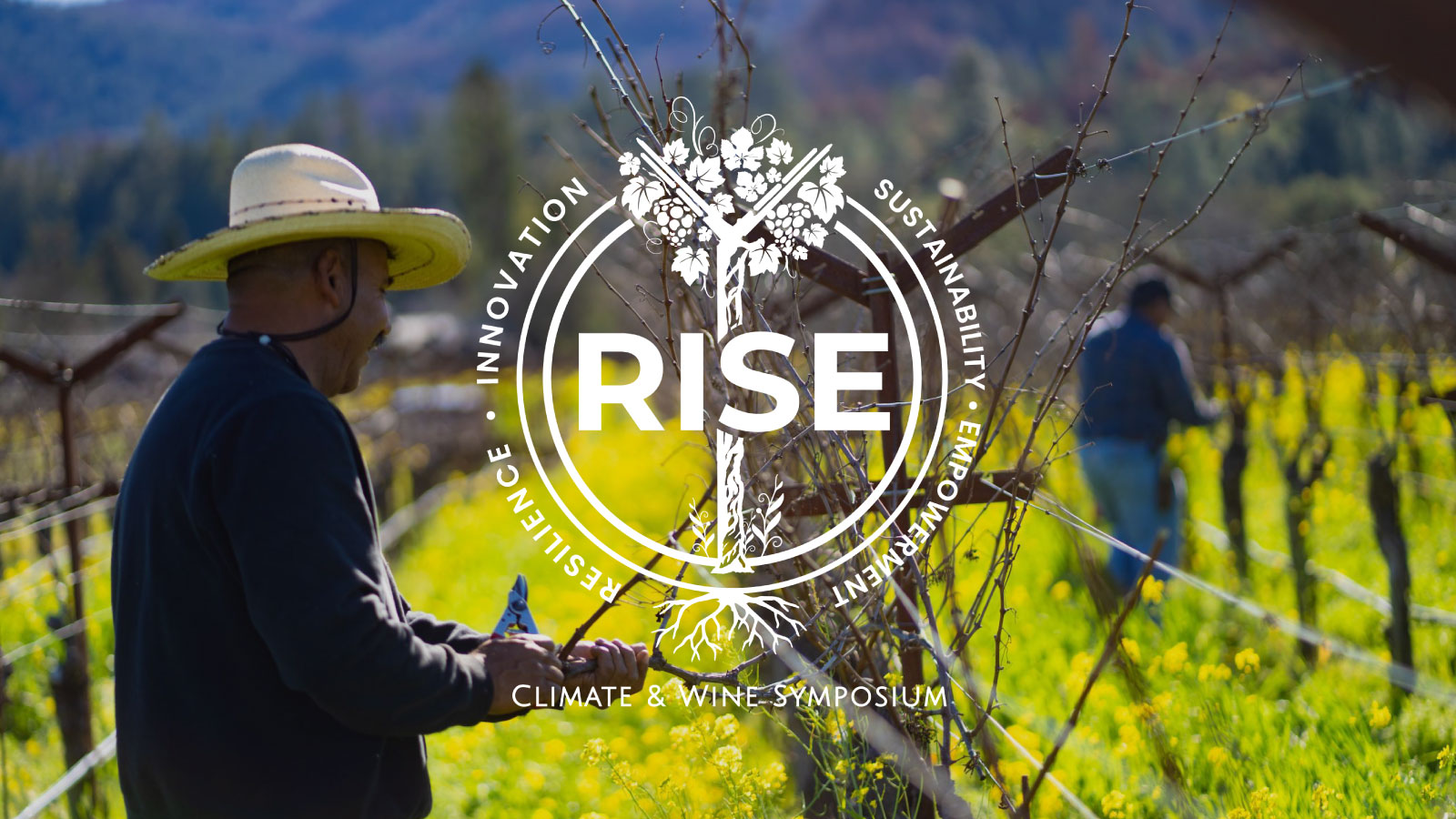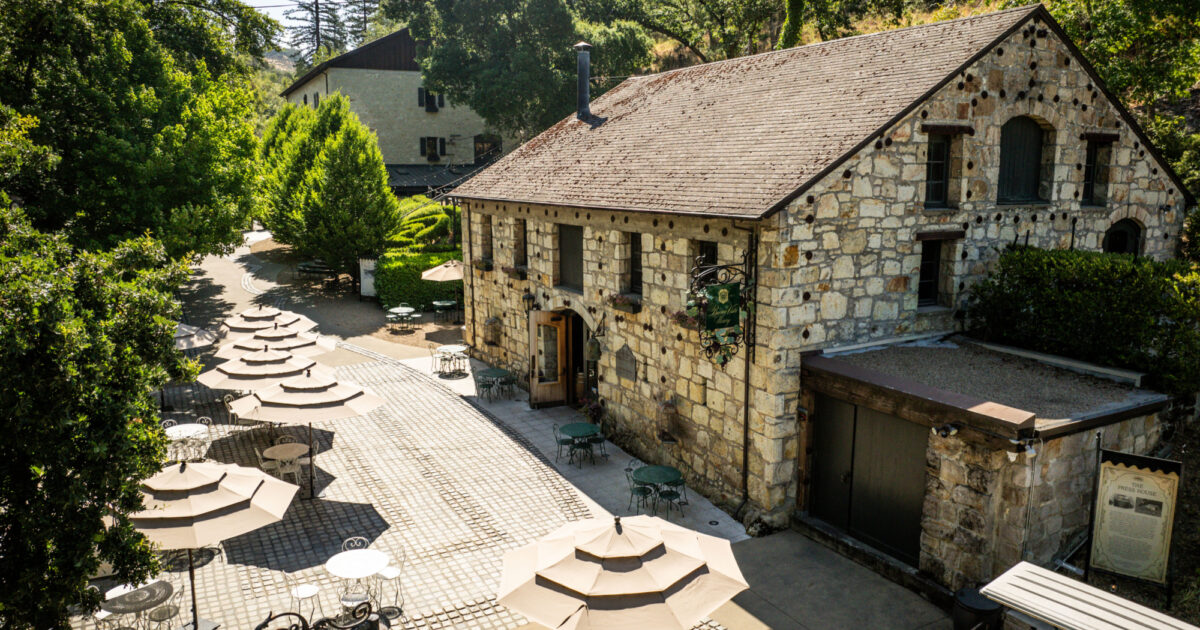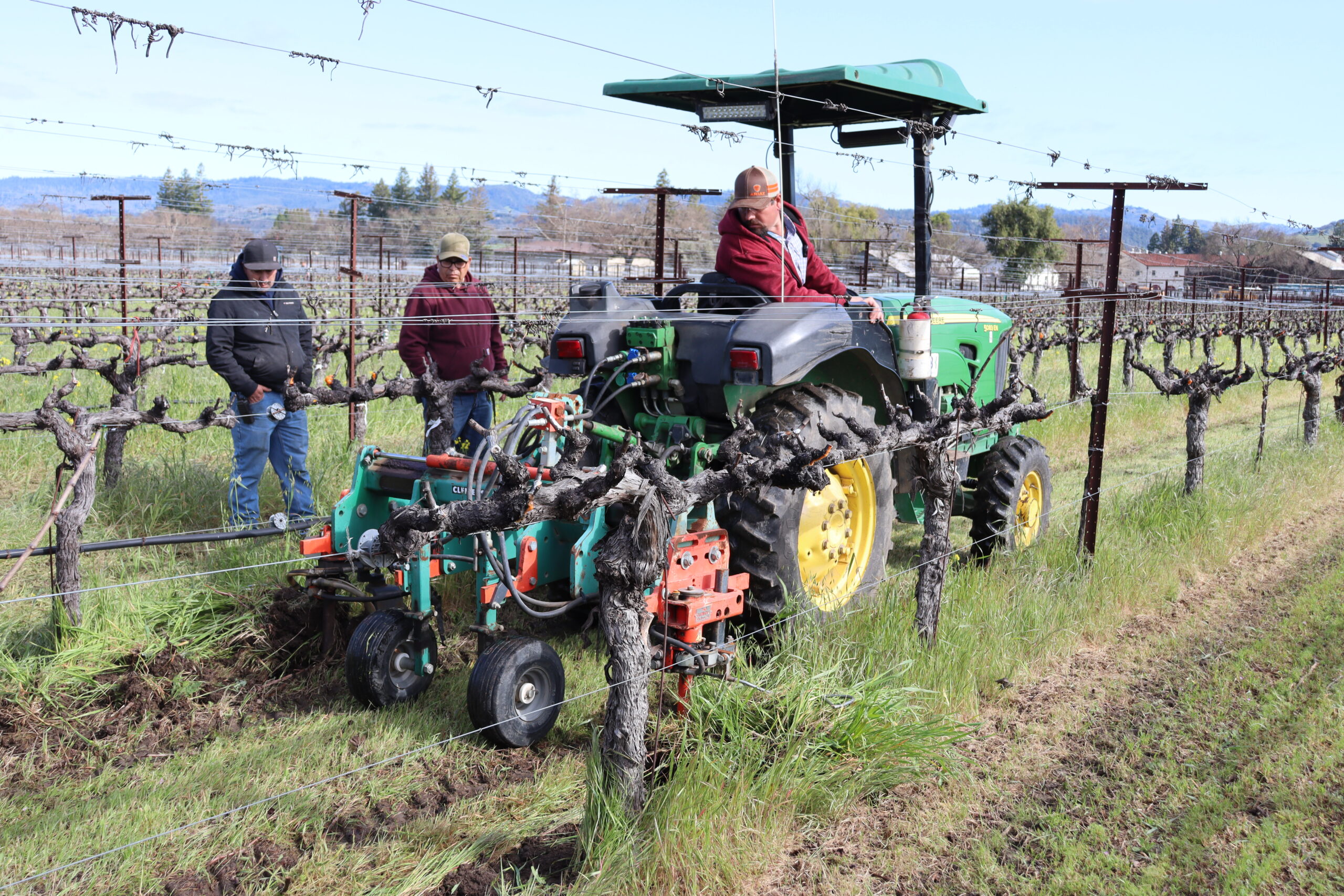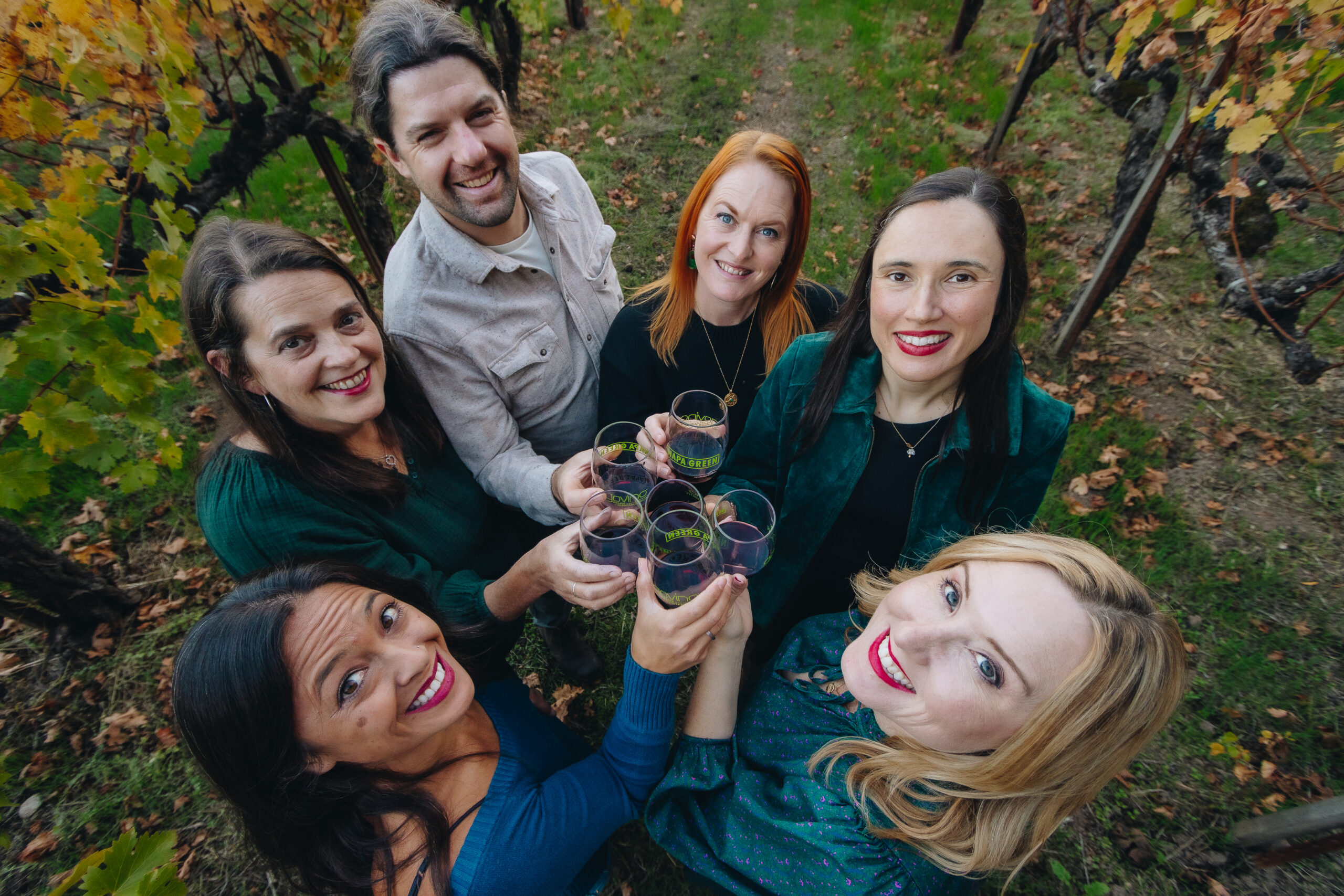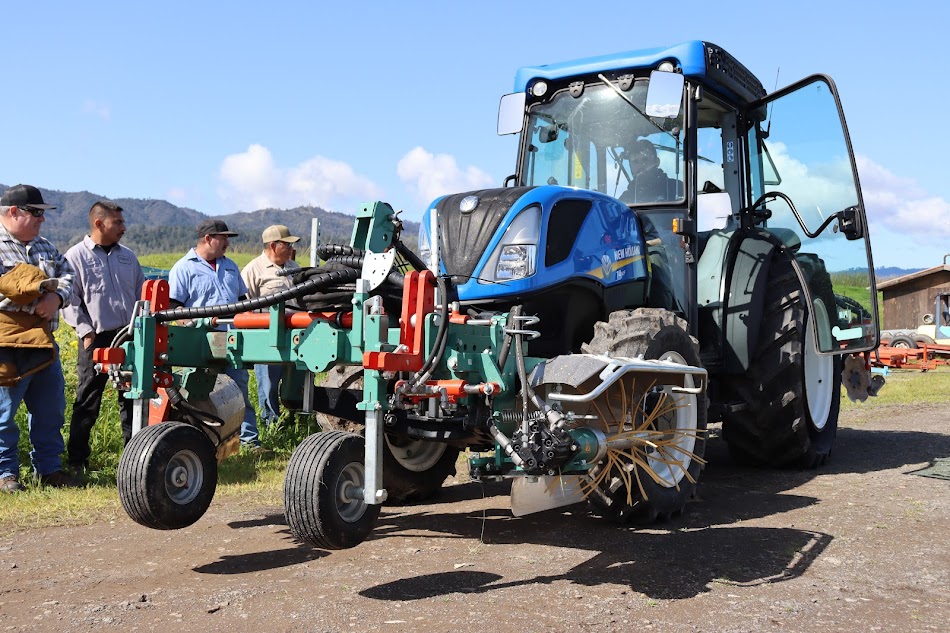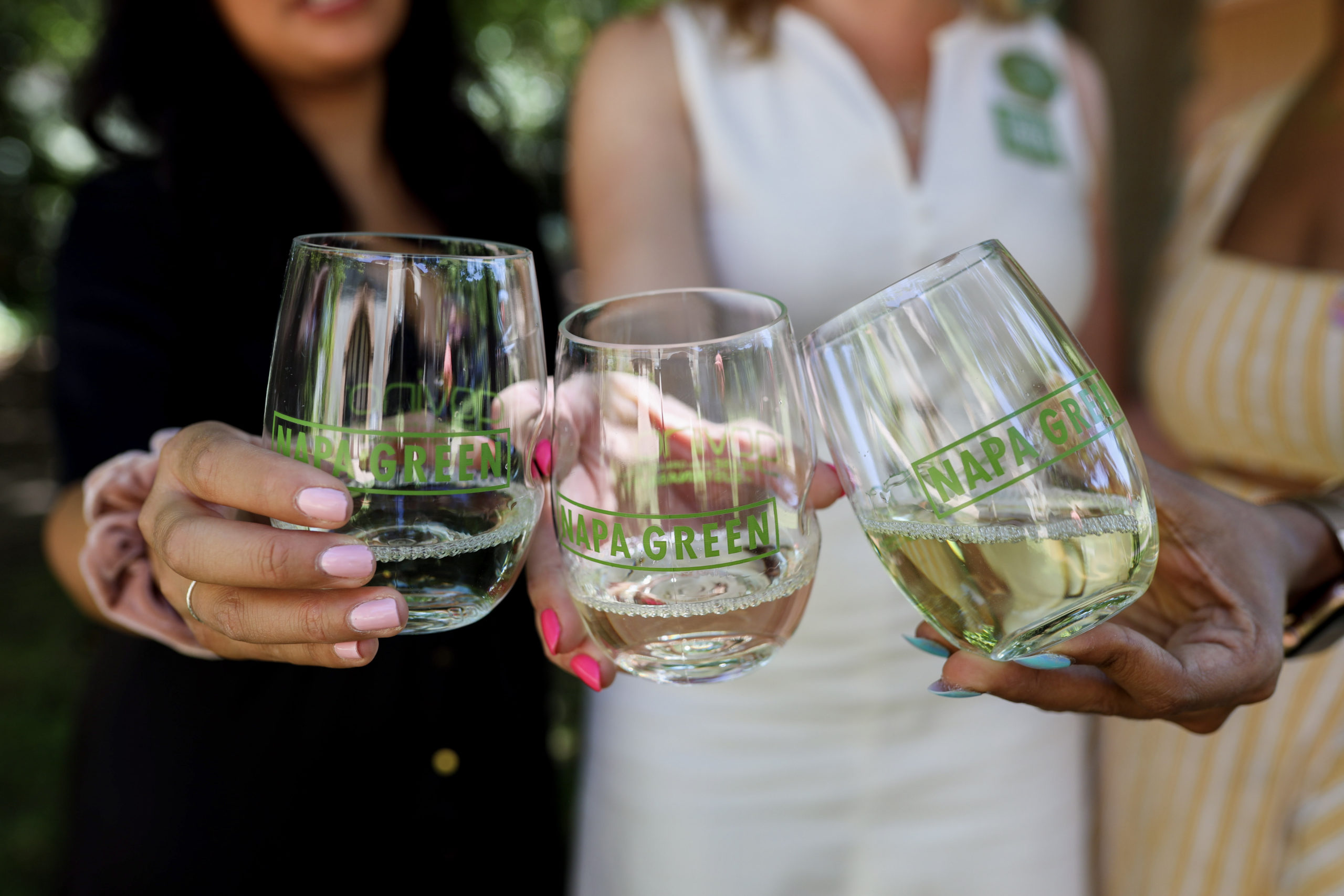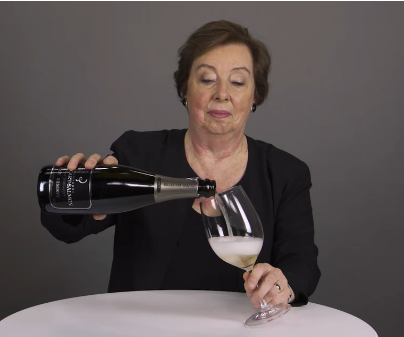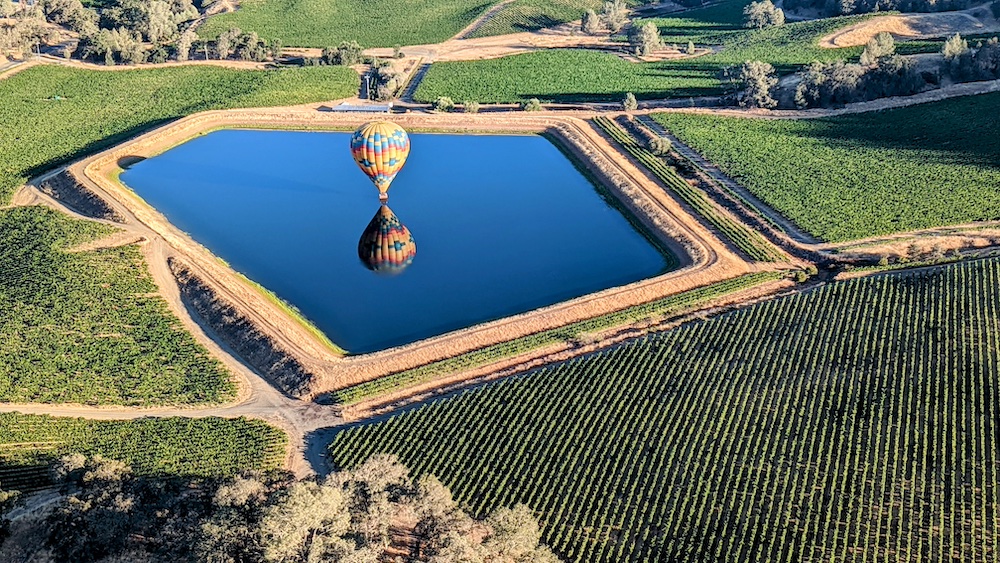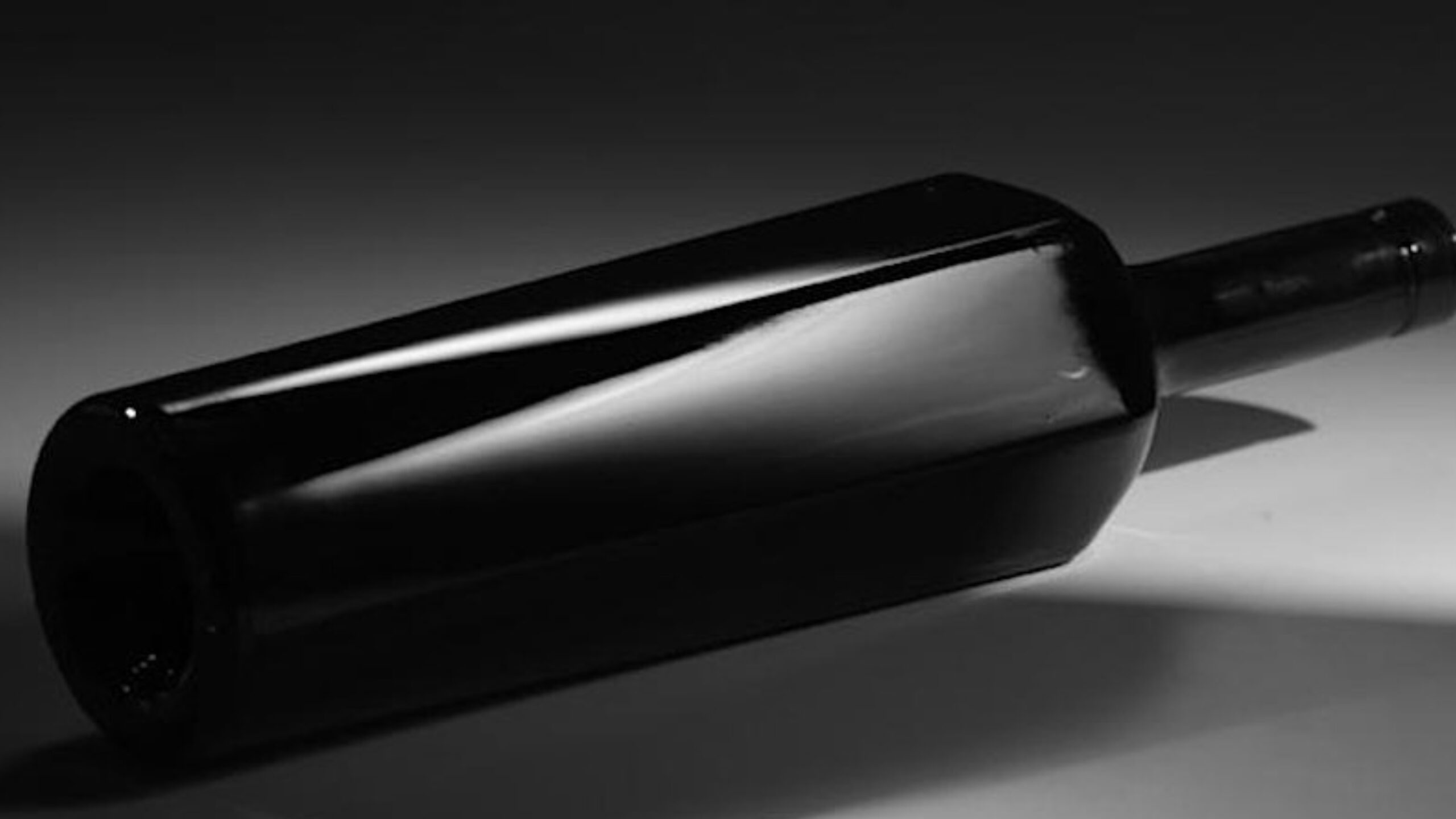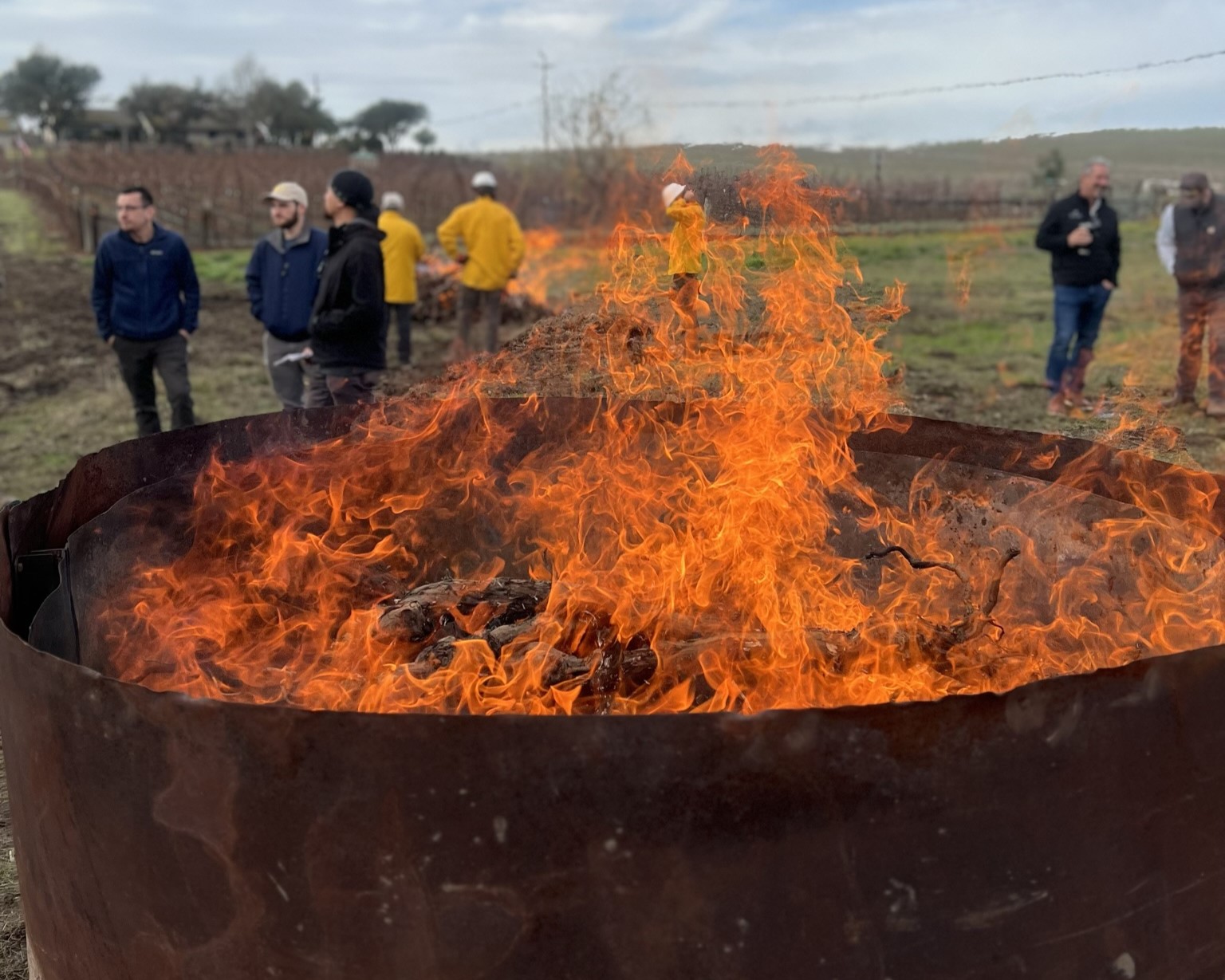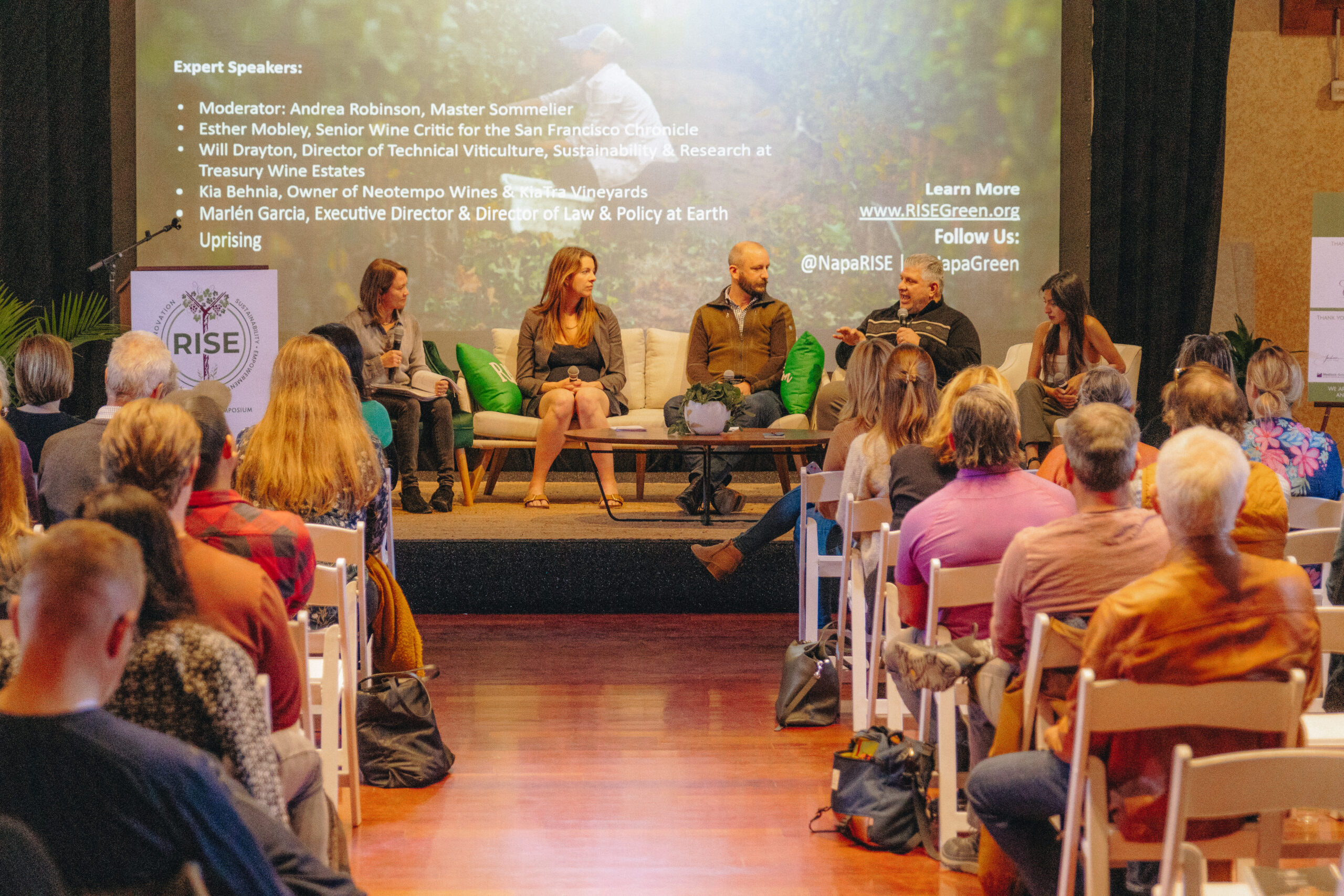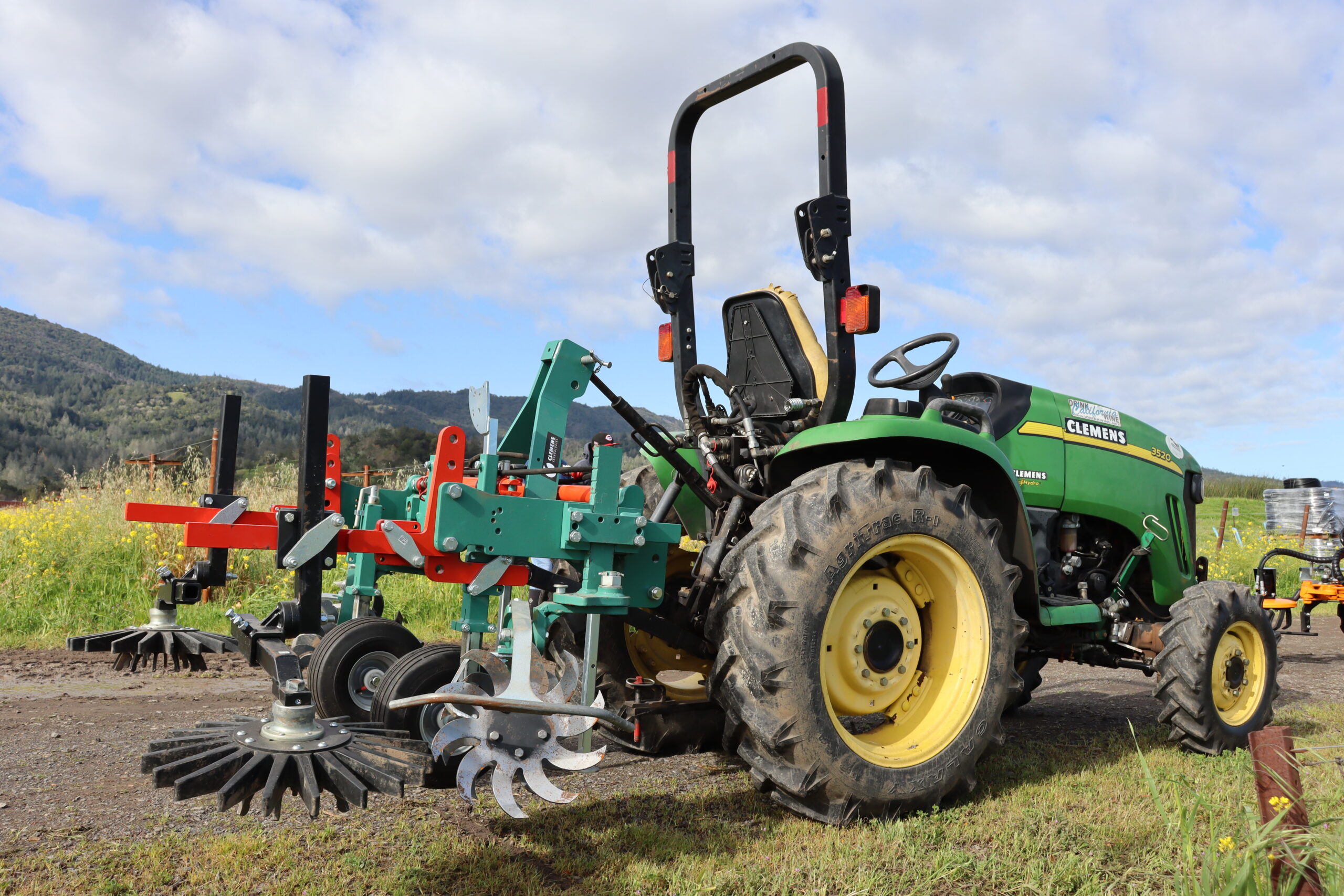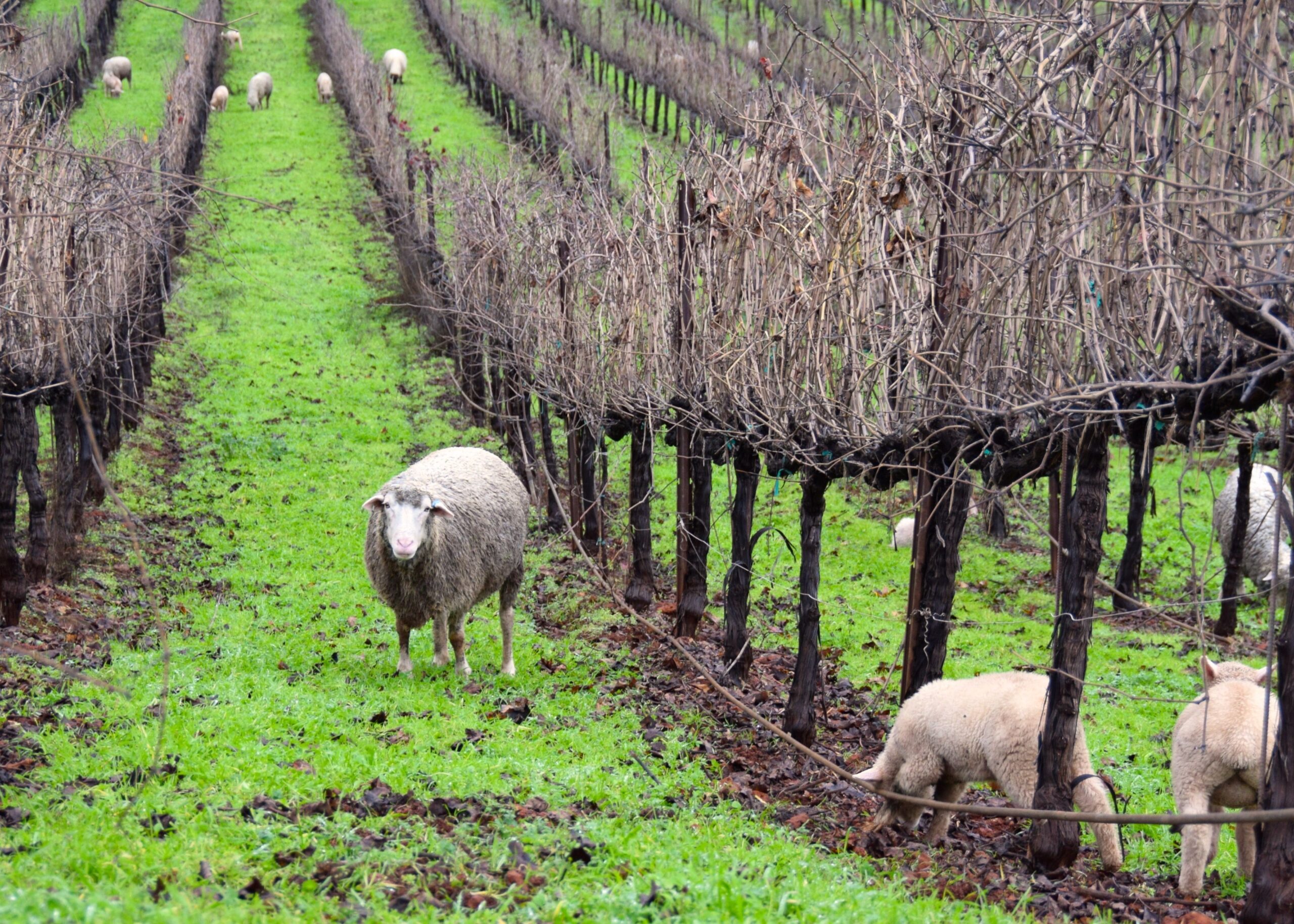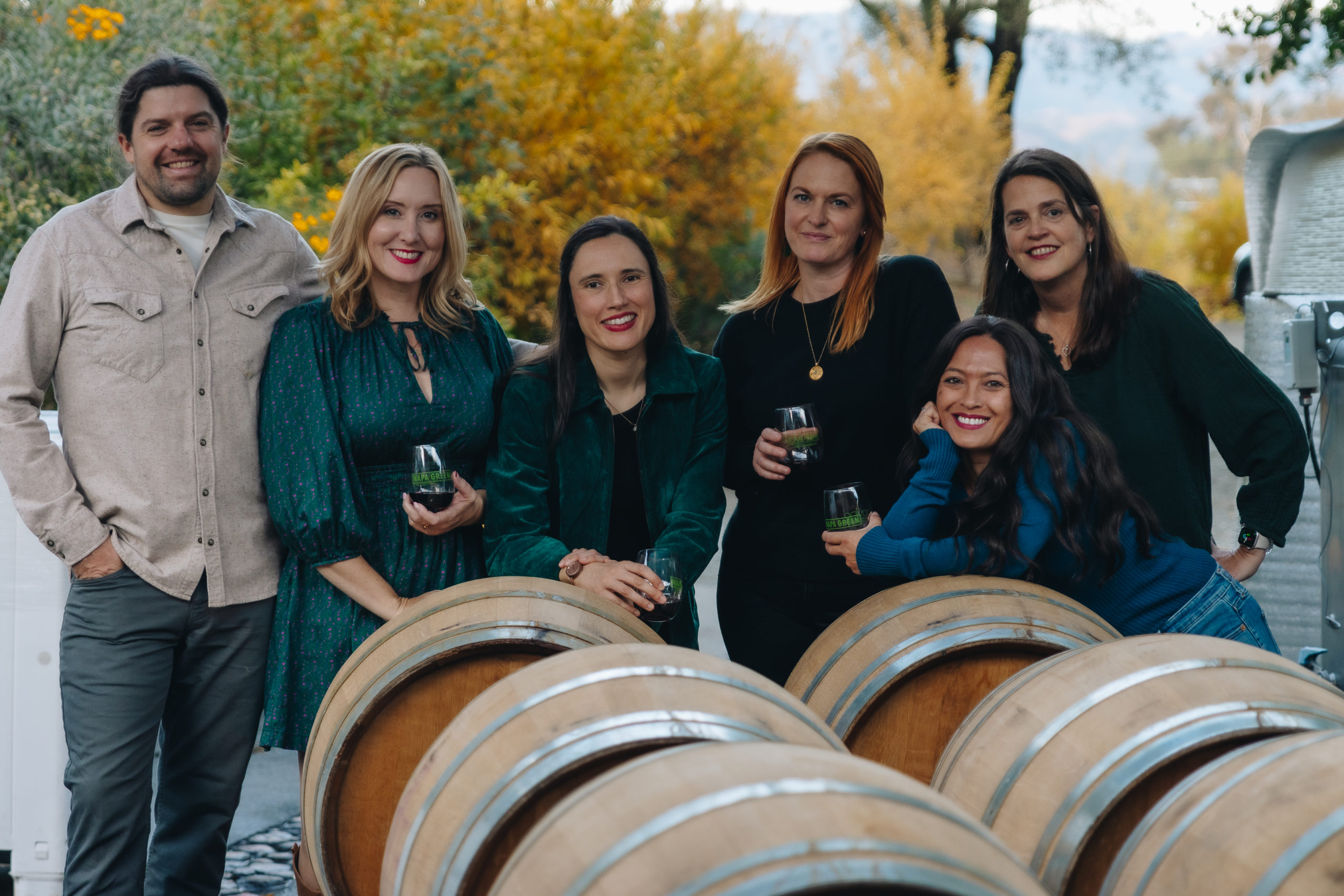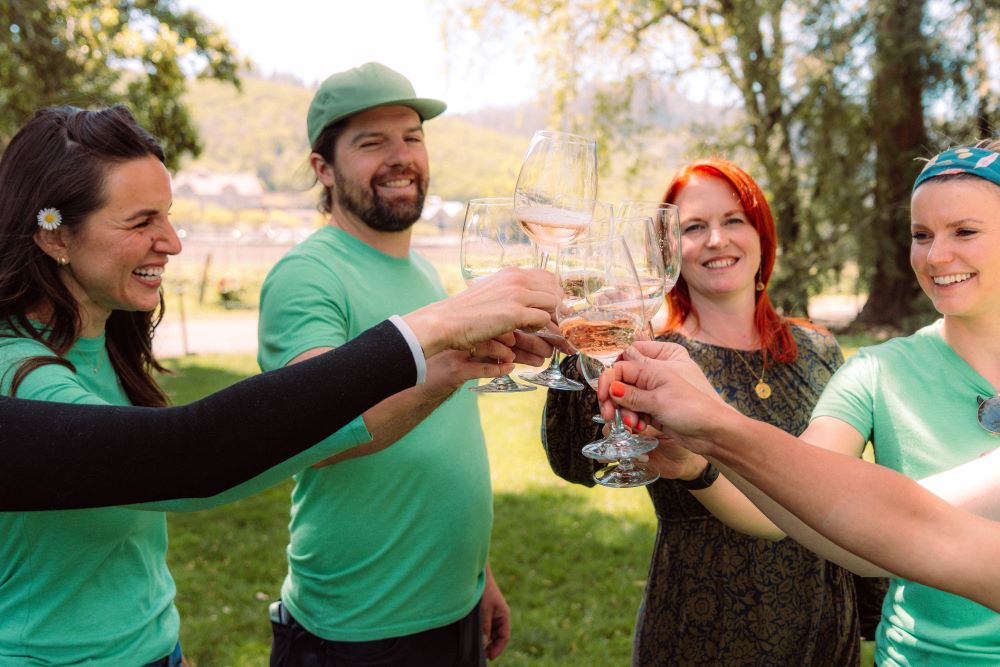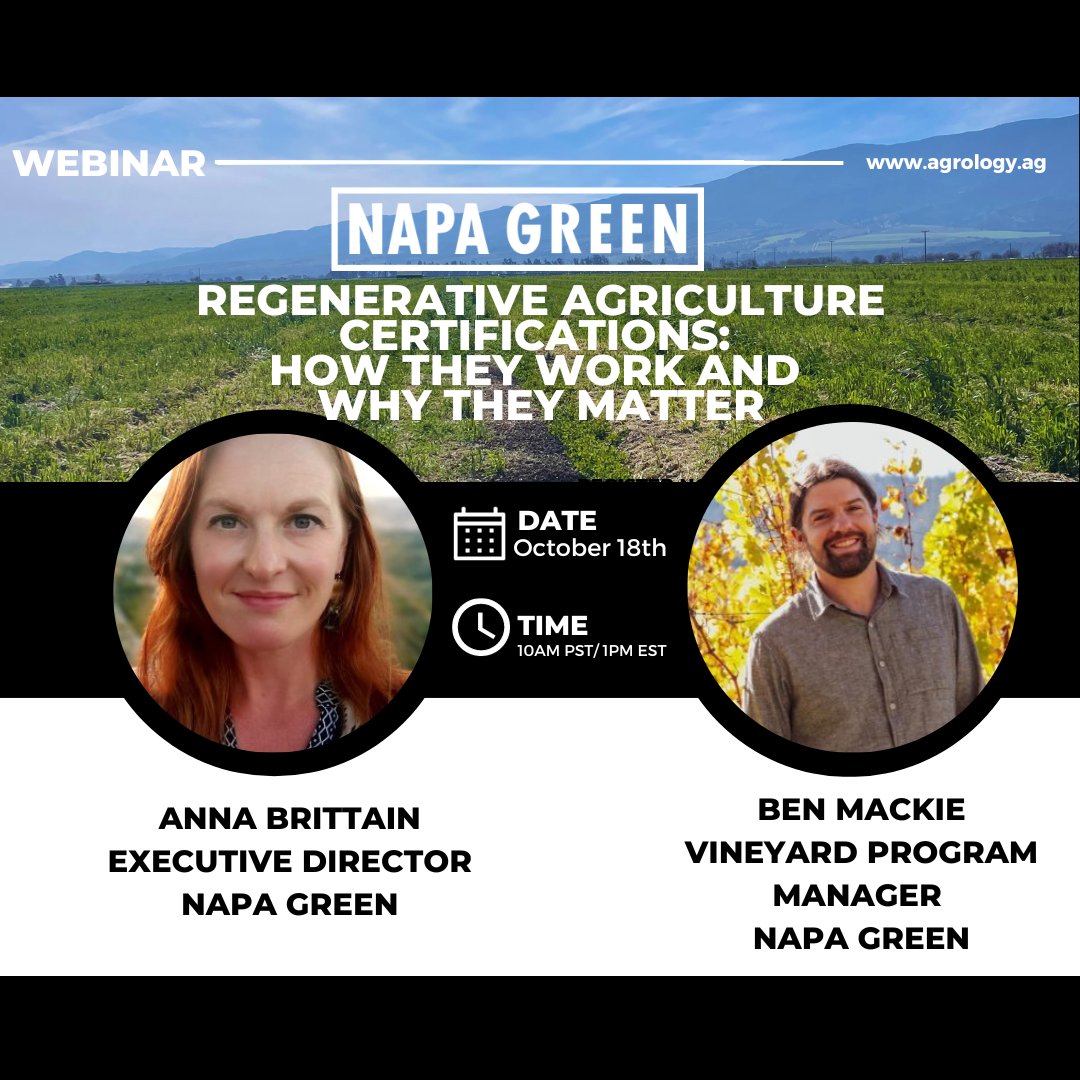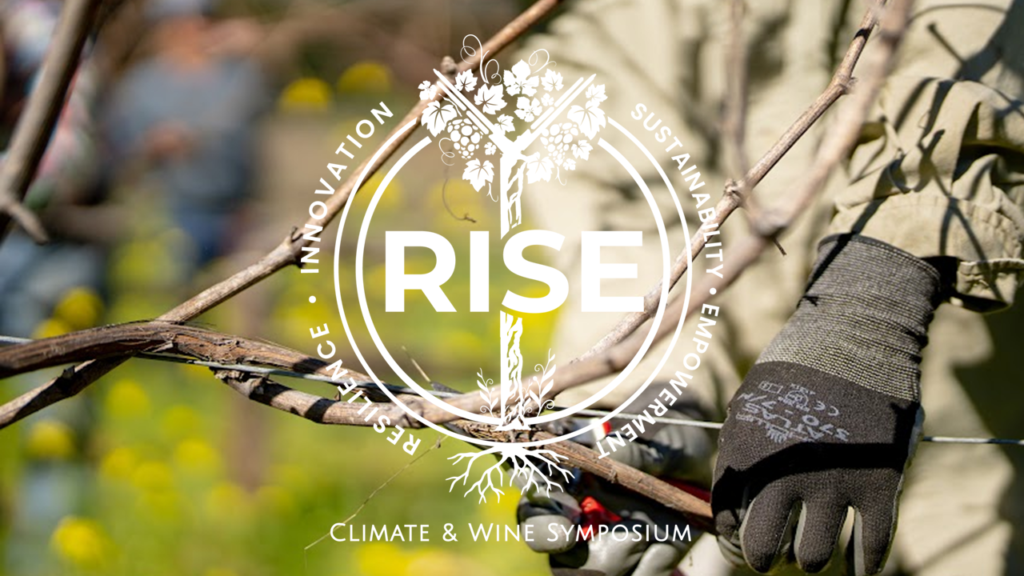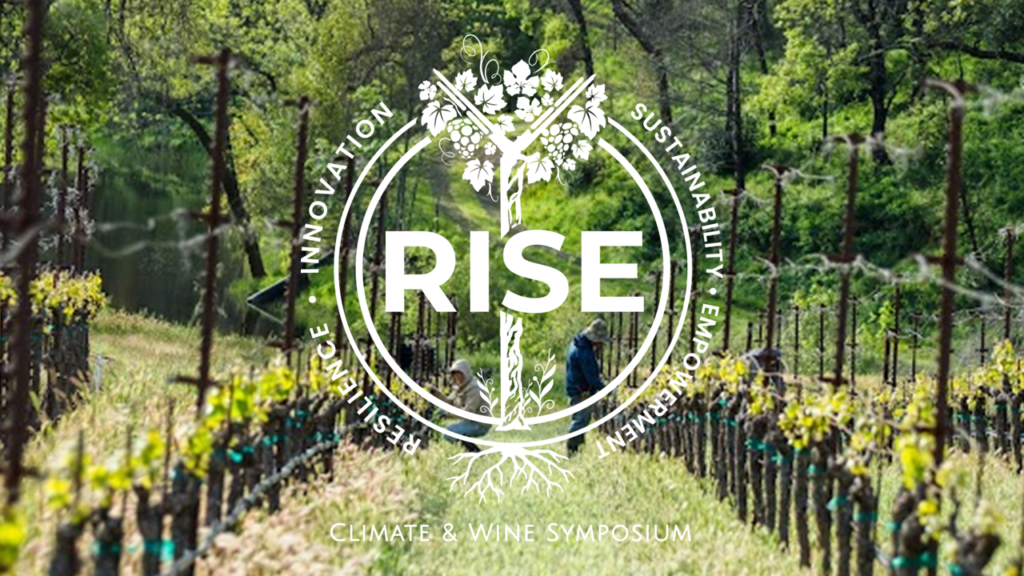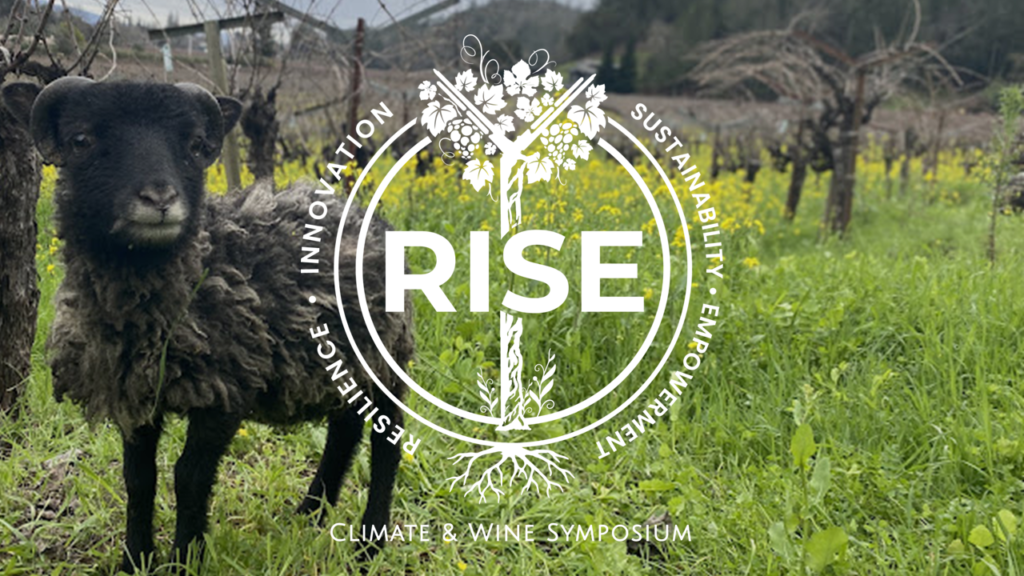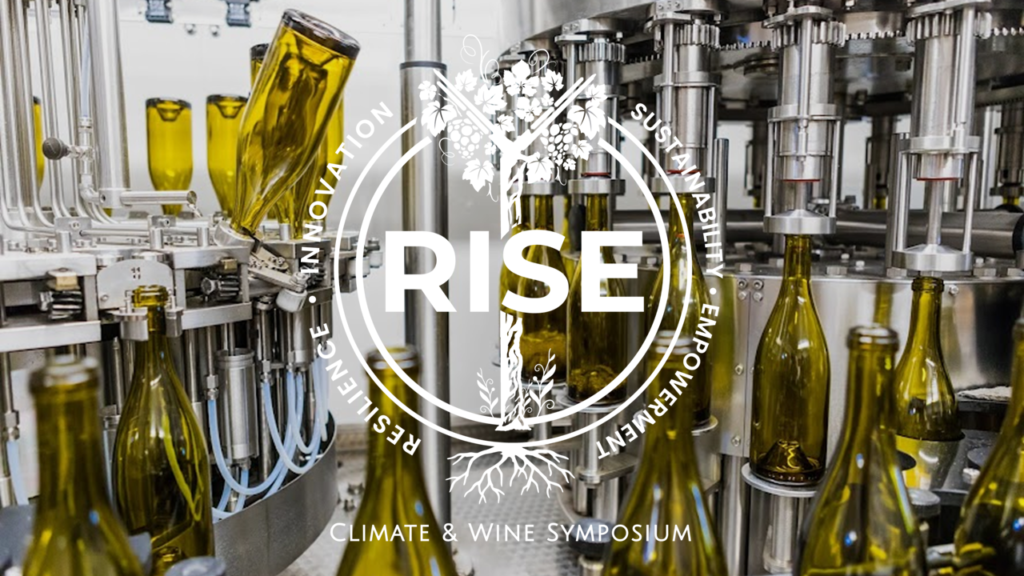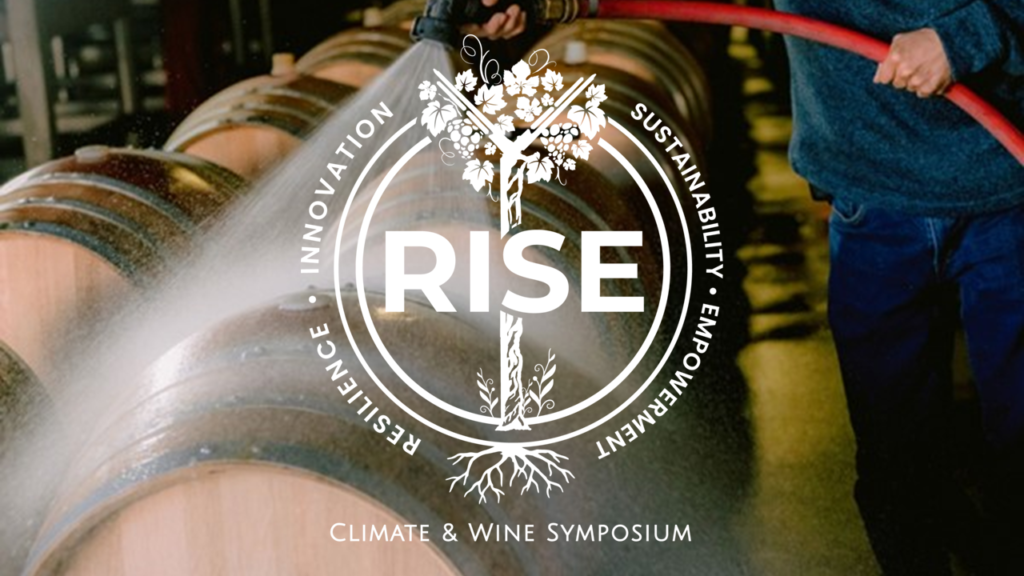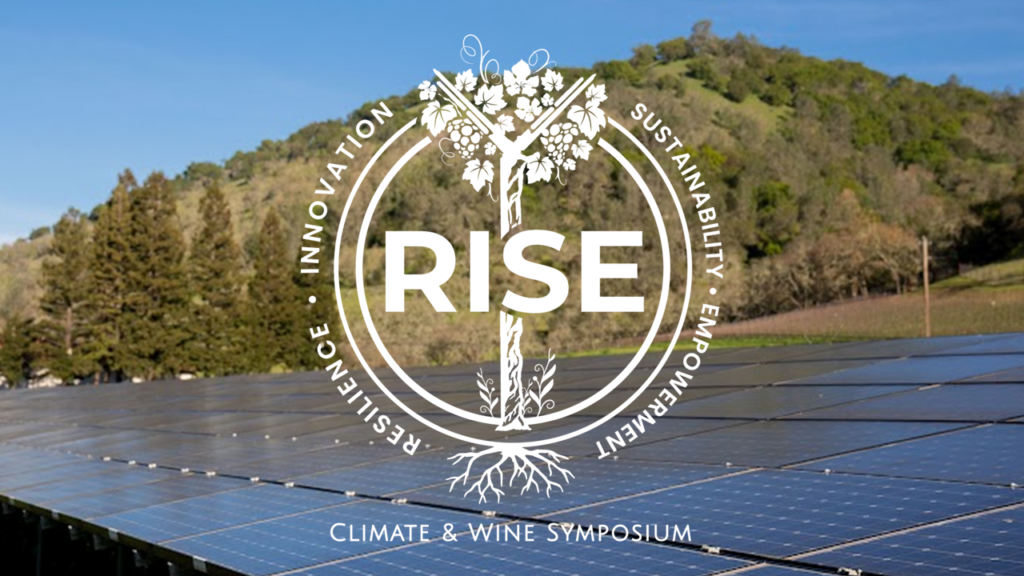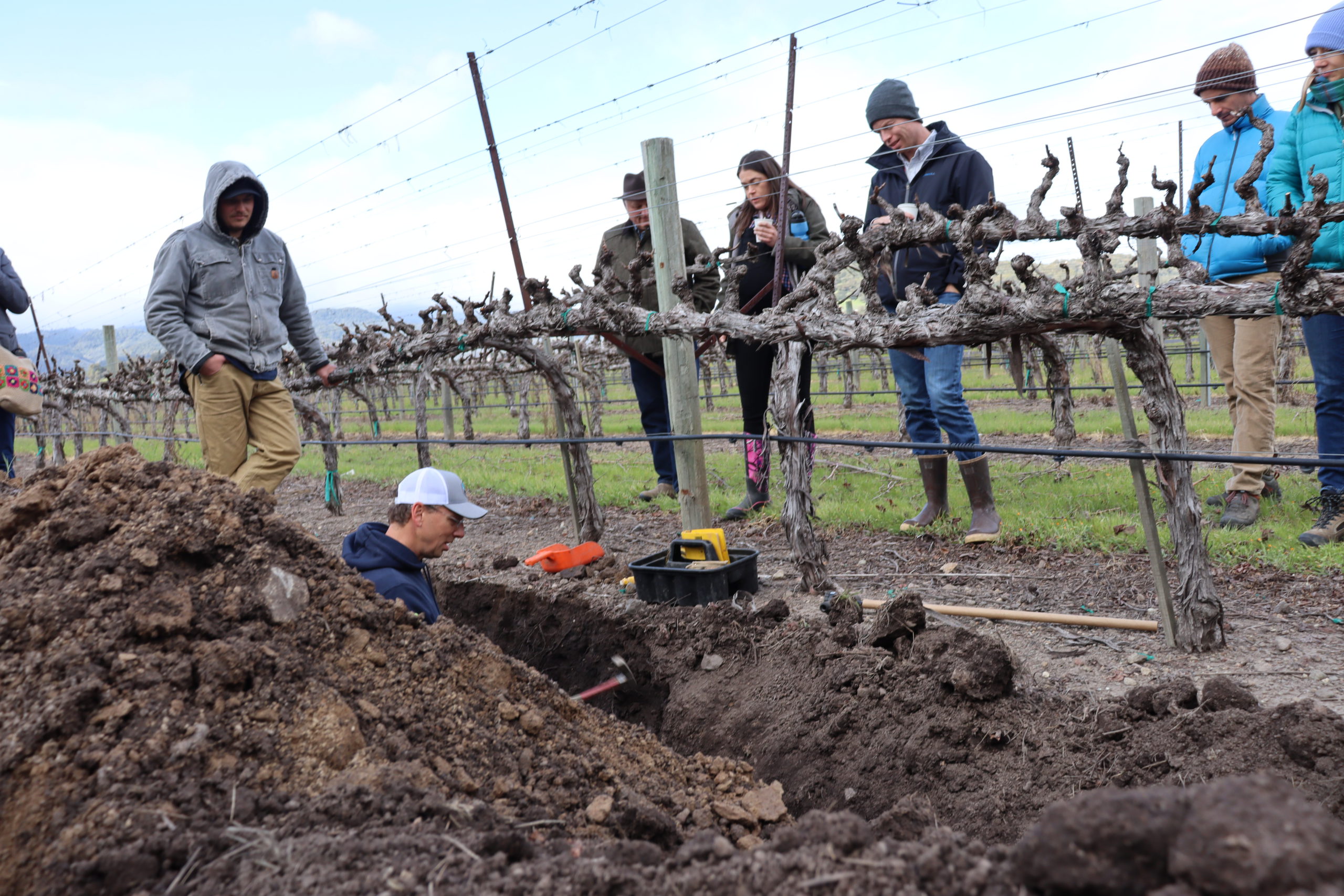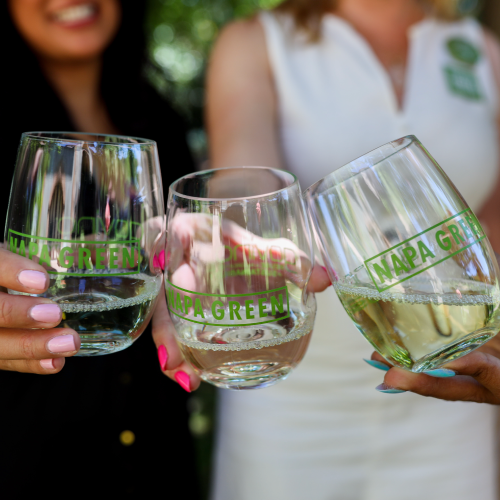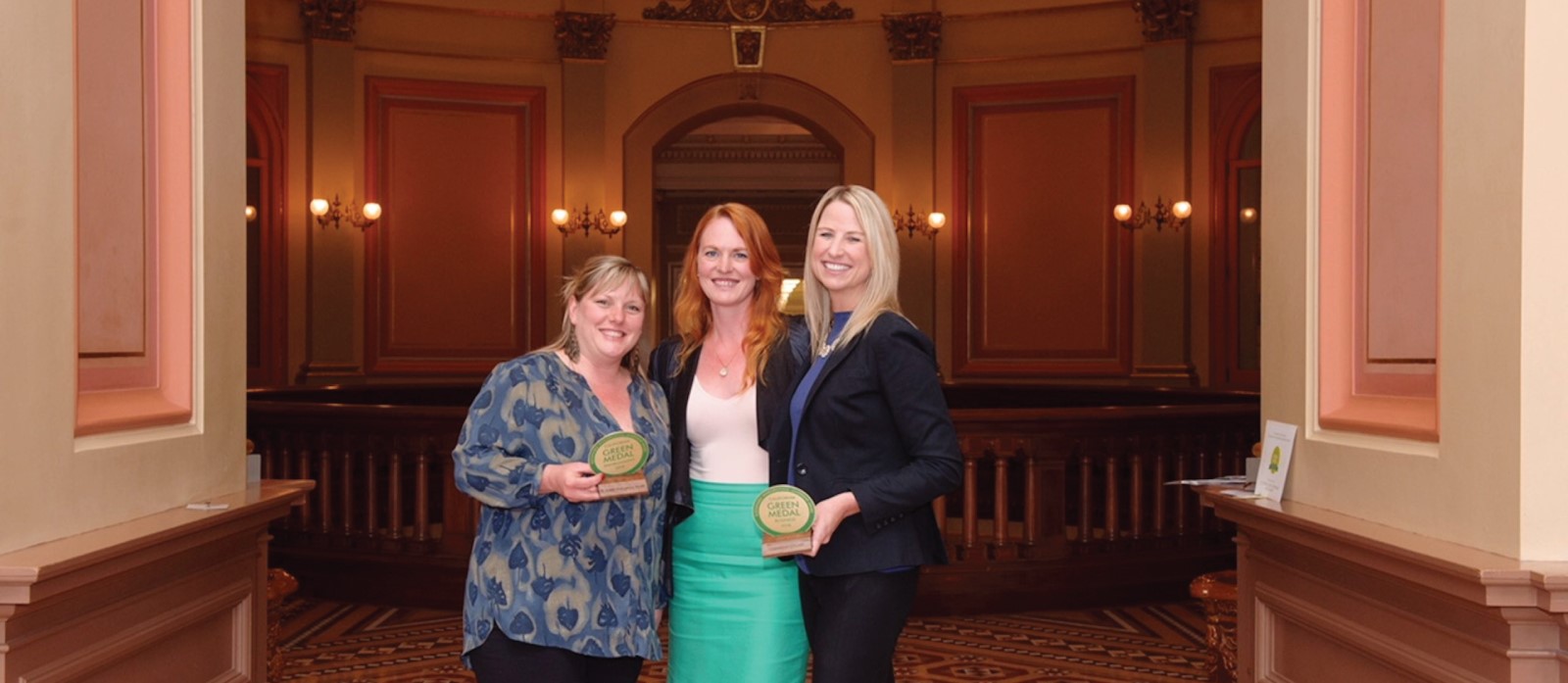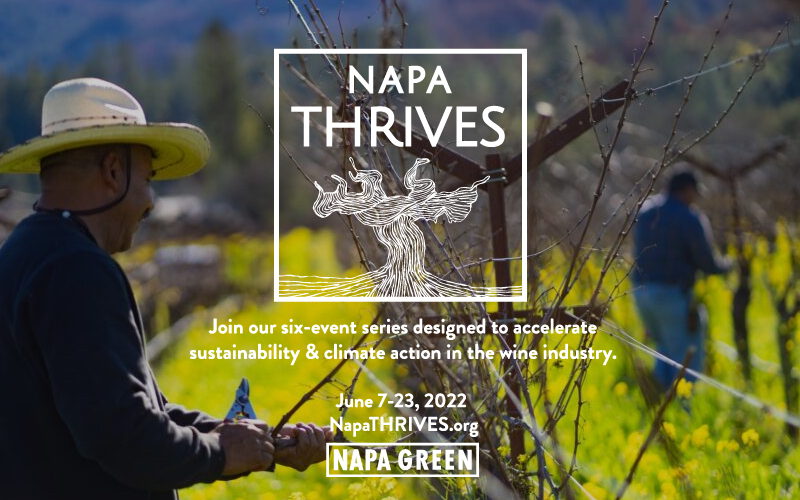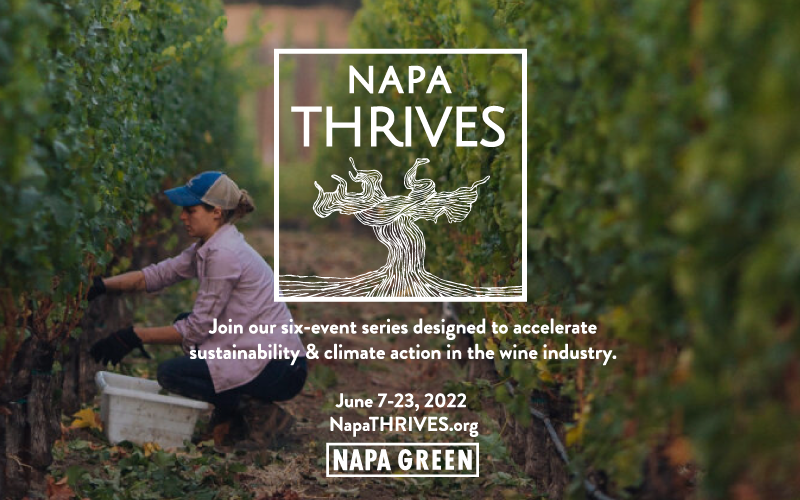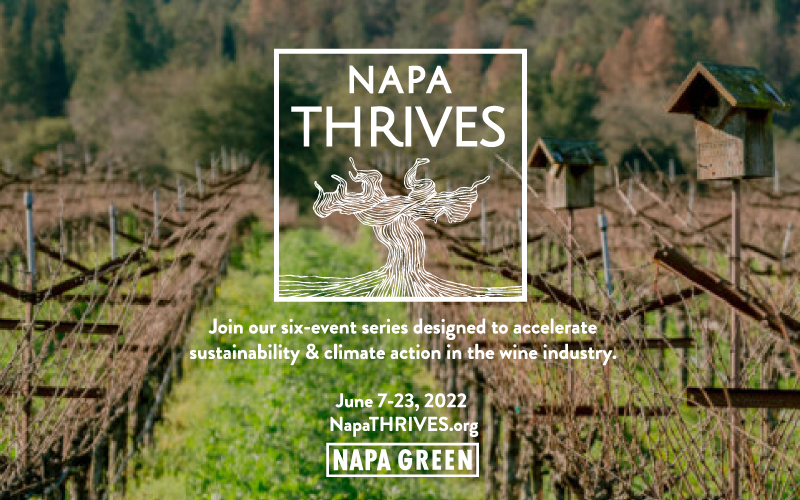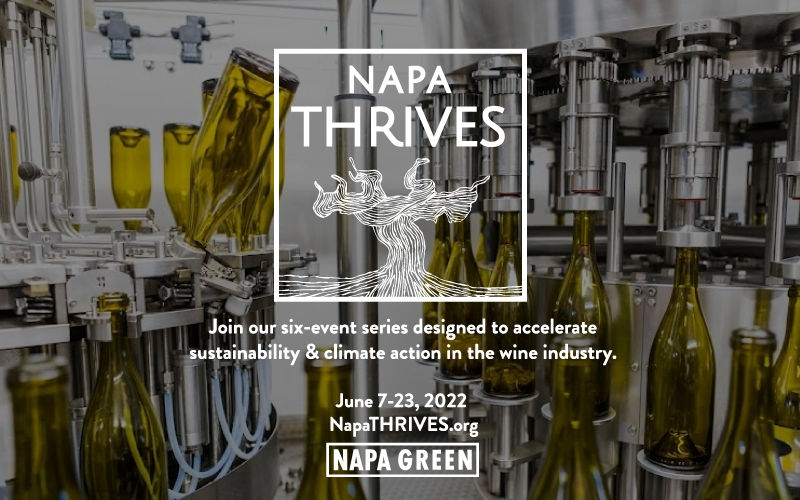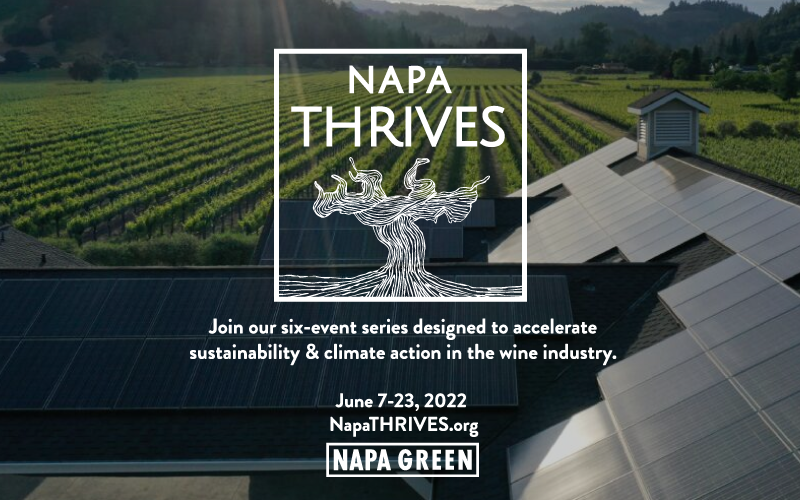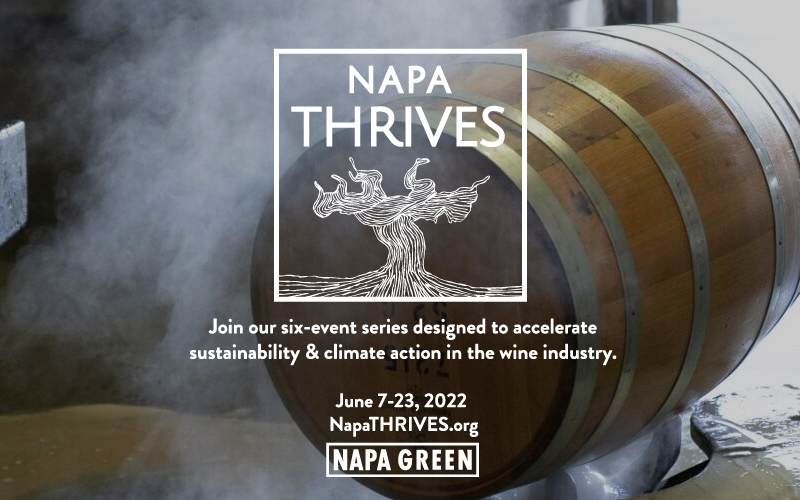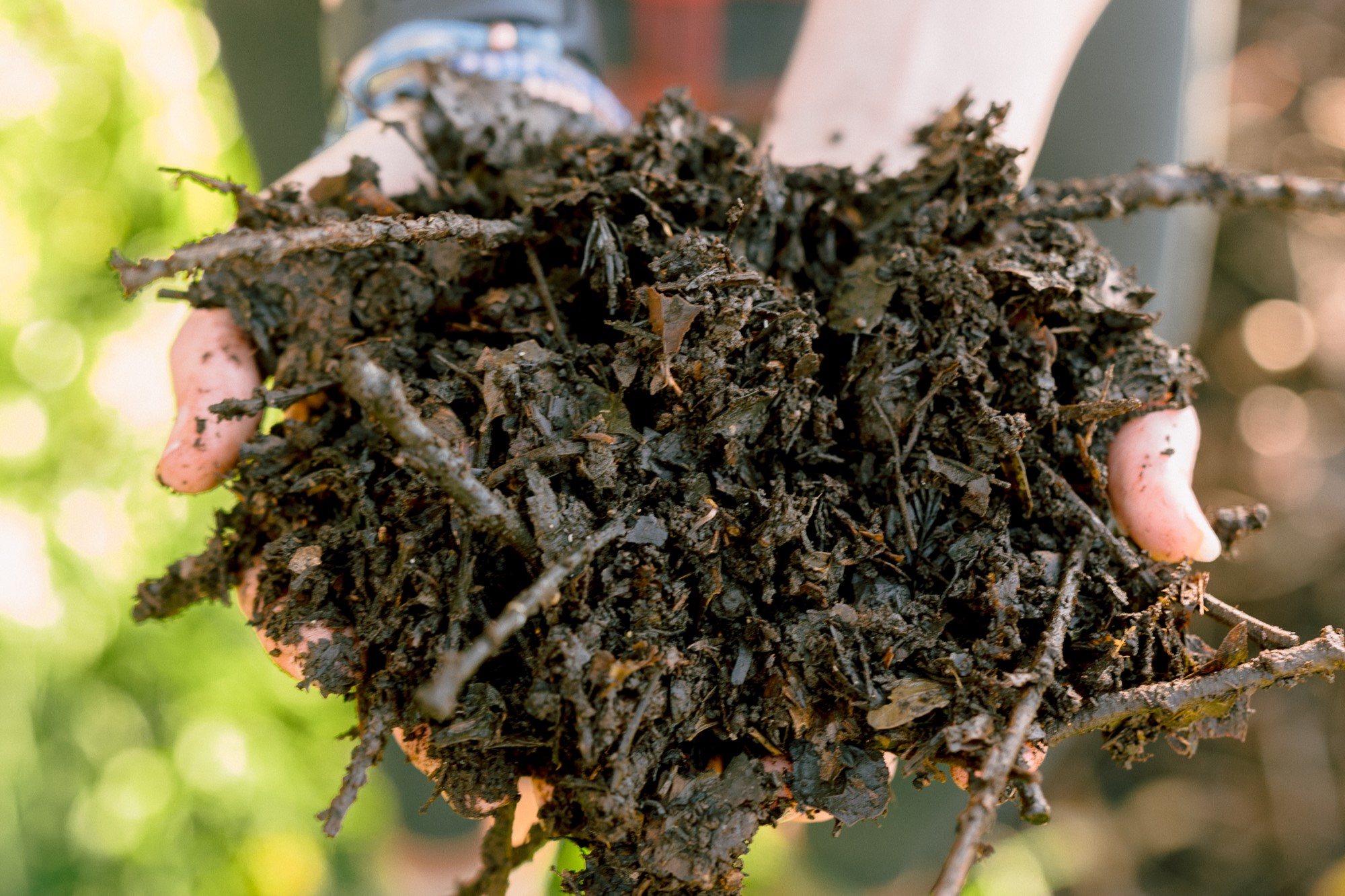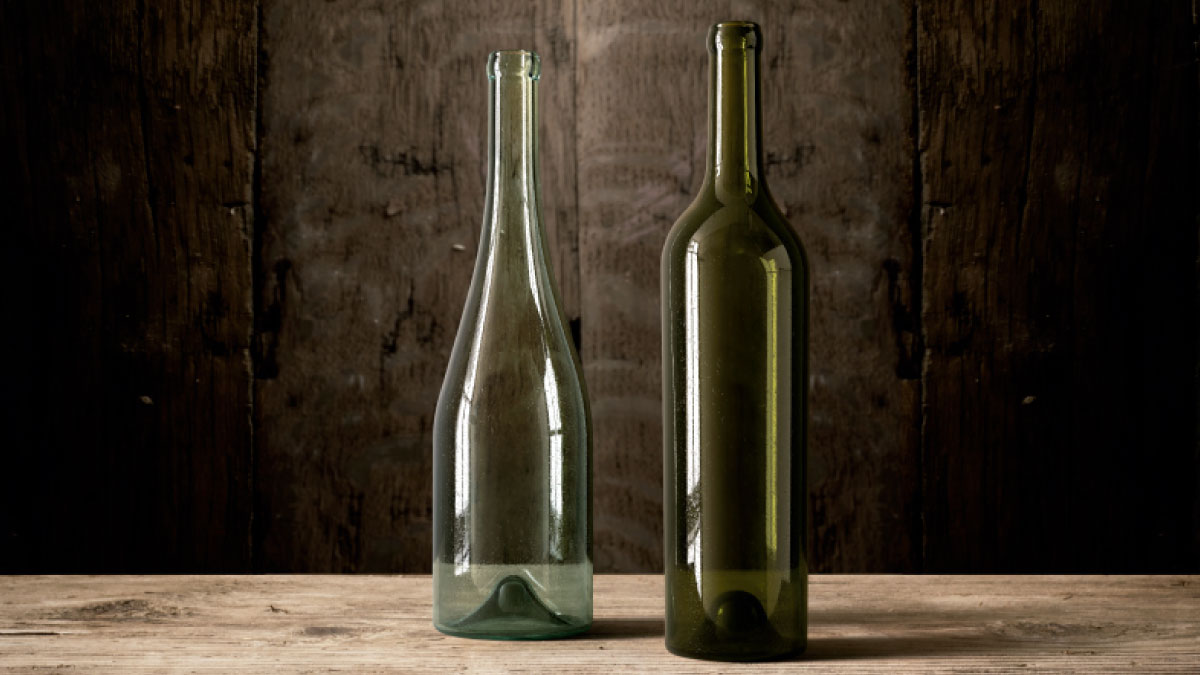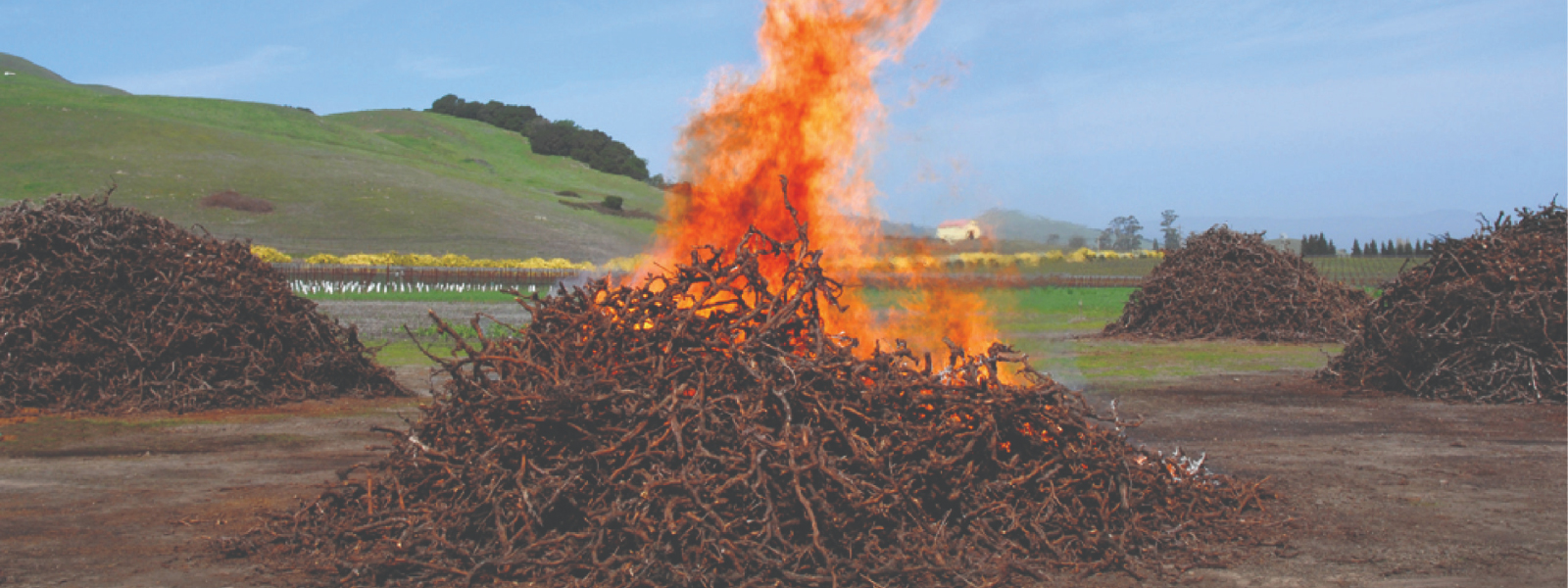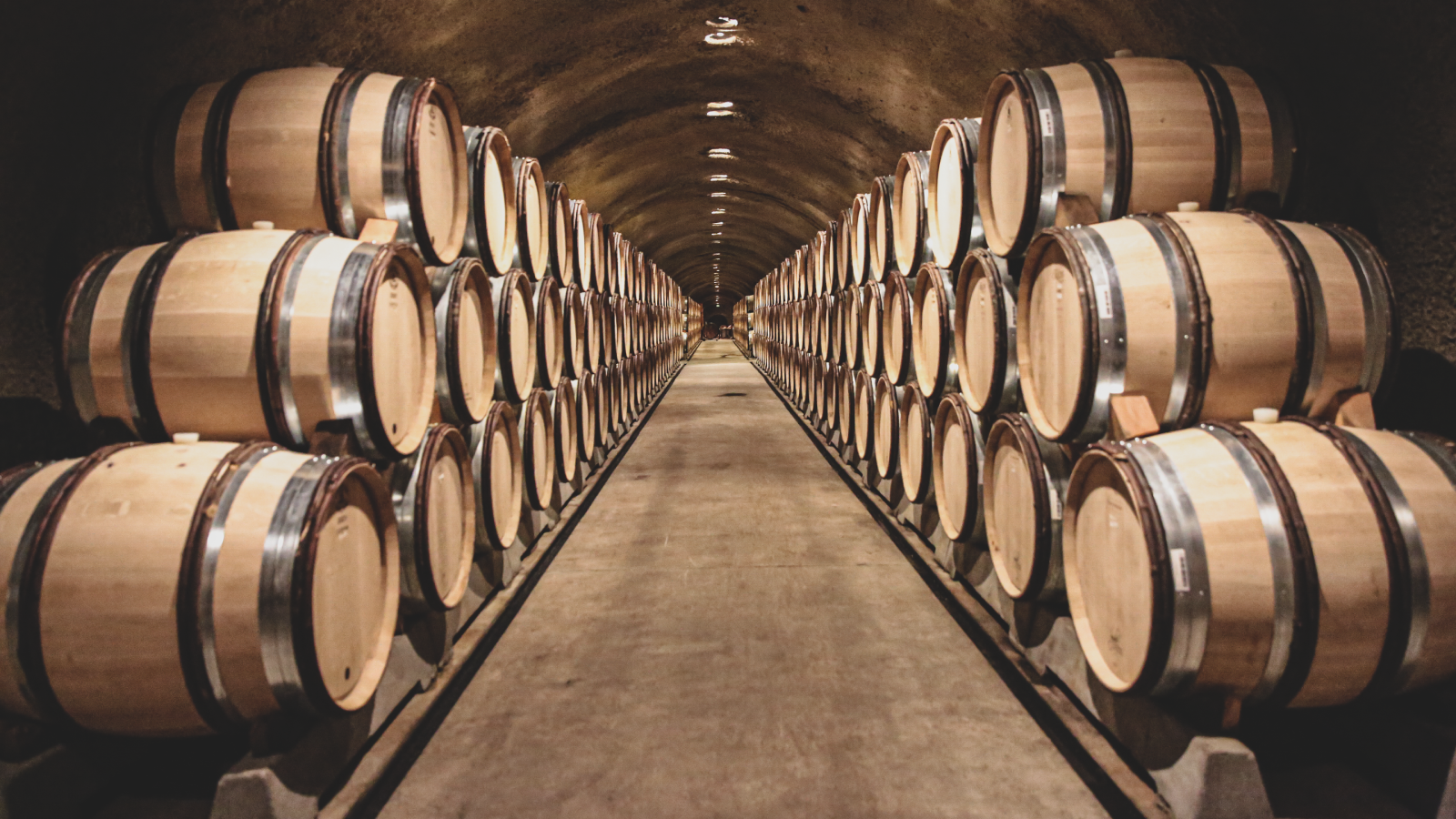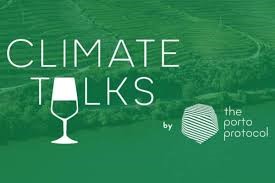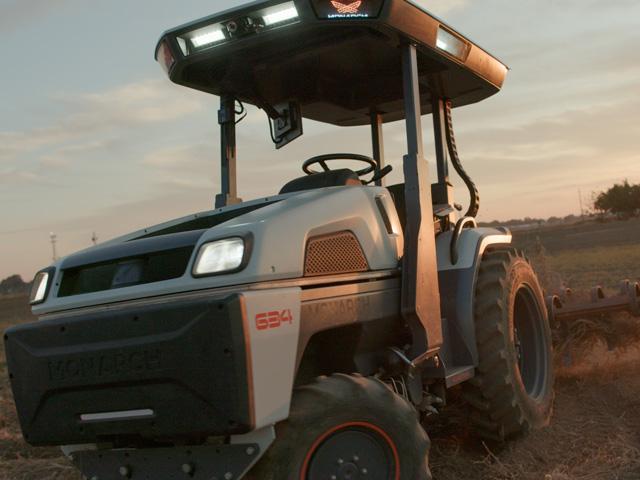UPCOMING WORKSHOPS & EVENTS
The RISE Climate & Wine Symposium is a series of six half-day events organized around the Six Pillars of Sustainable Winegrowing Leadership. Join us in taking action.
Past WORKSHOPS & EVENTS
March 20, 2025 | Buena Vista Winery
As we know, no two vintages are ever identical. Each vintage is dependent on the whims of Mother Nature. Join us to hear an array of perspectives on the 2024 vintage, including thoughts on navigating and adapting to an ever-shifting climate
March 11, 2025 | Michel-Schlumberger
See demonstrations of various implements for herbicide-free, undervine weed management. With dealers from Clemens, Pellenc and MG Equipment.
February 27, 2025 | Beringer Vineyards
Join us for a rare opportunity to spend a full day in a small group training with Nikki Silvestri, CEO of Soil & Shadow (background below). We have secured a matching grant so tickets are half the normal cost and value. Your ticket includes a delicious, catered family-style lunch.
December 12, 2024 | Clos du Val
Join us for some wine and appetizers and to hear about Napa Green happenings in 2024, and some important announcements for 2025.
November 7, 2024 | Grgich Hills Estate
One of the main resistances to phasing out Roundup is increased labor and equipment costs. With rising supply chain costs, the costs of herbicides and fertilizers have risen dramatically, so phaseout can offset increased labor costs. In addition, leaders like Grgich Hills Estate, a Napa Green member, have shown that regenerative organic farming can be cost-effective. Join us to learn from regional growers, and sample their wines.
august 2024 | 21 wineries
Throughout the month of August, the 21 participating Napa Green wineries will share their sustainability commitments and actions with you, their guests, and give back a portion of their proceeds to support the Napa Green nonprofit.
May 29, 2024 | Cakebread Cellars
Join us for a special roundtable workshop with award-winning journalist Elin McCoy, global wine critic for Bloomberg News and US editor for the podcast The Wine Conversation, with listeners in 95 countries. Elin will sit down with a small group of Napa Green members and share her insights on the types of stories and pitches most likely to engage the media.
May 23, 2024 | Silver Oak Napa Valley
One of the most critical agricultural concerns with our changing climate, and more frequent & intense weather extremes, is precipitation and water availability. The good news is opportunities abound to optimize irrigation efficiency, and implement regenerative practices that improve soil health, water infiltration, and retention. Join us for The Future of Water, with highlights including a keynote from Peter Gleick, one of the world's leading water experts, and Mimi Casteel, not only a viticulturist and winemaker, but also a forest ecologist with a vision for water resiliency.
April 26, 2024 | Pine Ridge Vineyards
On average 40-60% of a vineyard and winery's carbon footprint is from packaging and distribution alone. Join us to explore climate smart, sustainable glass, closures, the future of reusable glass, alternative packaging. Hear case studies. Learn what is truly recyclable, and new opportunities to recycle film wrap and label backing. Since 2020, climate smart marketed CPG products have doubled in sales to $3.4 billion. Wine bottles and packaging can be leveraged to meet rising consumer demand for climate smart products.
March 19, 2024 | Gloria Ferrer
See and learn the technique for a conservation/low-smoke burn. The Clean Burn Company and Napachar will run their BurnBoss air curtain burner and flame-capped kiln/ring-of-fire system for processing spent vines, fire fuel thinning, and other wood waste. All three of these techniques/technologies can be used to develop biochar. Michael Sippiora from Treasury Wine Estates will present the results of a recent vineyard biochar application research project.
March 14, 2024 | Freemark Abbey
Please join us for a special salon conversation, moderated by Andrea Robinson MS. Cathy Corison, Owner & Winemaker at Corison, Matt Brain, Winemaker at Alpha Omega, and Morgan Twain-Peterson MW, Owner & Winemaker at Bedrock Wine Co. will join in conversation around navigating and adapting to climate swings and weather weirding from one vintage to the next.
March 7, 2024 | Inglenook
Hear from vineyard leads at Inglenook, Grgich, and Spottswoode about herbicide-alternatives to weed management, and the benefits for soil health. See equipment and demos of Clemens, Pellenc, Calderoni, Fischer Twister, and a french plow. Come with questions!
Eligible for 3 hours of CEUs.
February 27, 2024 | Castello di Amorosa
Sheep grazing offers numerous benefits in the vineyard when implemented properly. Join us for a field day in partnership with Napa Valley Grapegrowers to discuss how to best utilize sheep grazing to achieve your goals in the vineyard, as well as how to employ grazing animals to manage woodlands for fire fuel reduction or post-fire recovery. With Christian Cain of Perennial Grazing, Jaime Irwin of Kaos Grazing, Sarah Keiser with Wild Oat Hollow and Tommy Fenster with UC Davis, Gaudin Lab
February 22, 2024 | Wheeler Farms
Join Napa Green and certified members from Alpha Omega, Domaine Chandon, Grgich Hills Estate, Inglenook, Rombauer Vineyards, Spottswoode Estate Vineyard & Winery, St. Supéry Estate Vineyards & Winery, Trefethen Family Vineyards, and Trois Noix (in collaboration with Matthiasson) to get a preview of PNV wines from vintners committed to leadership in sustainability and climate action in the Napa Valley.
December 7, 2023 | St. Supéry Estate
Over snacks and wine, we heard from Anna Brittain, Napa Green Executive Director, and the Napa Green team about recent program updates. There was a panel with Ivo Jeramaz, Vice President of Vineyards & Production at Grgich Hills Estates and Steve Matthiasson, of Matthiasson Winery and Premiere Vit, talking about herbicide-free farming, approaches, costs/benefit and ROI.
November 30, 2023 | Dominus Estate
Exploring what Regenerative Farming Systems can teach us about Regenerative Social Systems. Soil and Shadow works with C-Suite executives, leaders and teams to build the relational and professional development skills for high performance, diversity, equity and inclusion.
October 18, 2023 | ONLINE
In the world of regenerative agriculture, third party certifications matter. These endorsements can demonstrate your commitment to sustainability. But what should you look for in a certification?
April 20, 2023 | Charles Krug WInery
Learn about climate action & regenerative agriculture at RISE Climate & Wine Symposium.
April 19, 2023 | Charles Krug WInery
Learn about social justice, diversity & inclusion at RISE Climate & Wine Symposium.
April 13, 2023 | Charles Krug WInery
Learn about proactive farming, soil health & biodiversity at RISE Climate & Wine Symposium.
April 12, 2023 | Charles Krug WInery
Learn about waste prevention & supply chain at RISE Climate & Wine Symposium.
April 6, 2023 | Charles Krug WInery
Learn about saving water and water efficiency at RISE Climate & Wine Symposium.
April 5, 2023 | Charles Krug WInery
Learn about saving energy and energy efficiency at RISE Climate & Wine Symposium.
March 23, 2023 | Seavey Vineyard
This morning workshop at Seavey Vineyard discussing their approach to proactive forest management and stewardship of the woodlands.
February 23, 2023 | Chimney Rock Winery
This workshop covered the hows and whys of soil sampling. Nick Madden from Vineyard Soil Technologies explained the soil health principles we can learn from our soil test results.
November 8, 2022 | Trefethen Family
Over snacks and wine, we will share a program update, provide answers to some of our most frequently asked questions, and provide plenty of time to answer any other community questions.
October 27, 2022 | Chimney Rock Winery
What does it mean to be Napa Green Certified and how can it help you engage guests and differentiate your brand? Learn this and more in our Napa Green Ambassador program.
June 23, 2022 | Charles Krug WInery
Napa THRIVES is a series of six half-day, tightly focused events organized around the Six Pillars of Sustainable Winegrowing Leadership. Learn about Climate Action & Regenerative Farming.
June 21, 2022 | Charles Krug WInery
Napa THRIVES is a series of six half-day, tightly focused events organized around the Six Pillars of Sustainable Winegrowing Leadership. Learn about Social Equity, Diversity & Inclusion.
June 15, 2022 | Charles Krug WInery
Napa THRIVES is a series of six half-day, tightly focused events organized around the Six Pillars of Sustainable Winegrowing Leadership. Learn about Integrated Pest Management & Prevention.
June 14, 2022 | Charles Krug WInery
Napa THRIVES is a series of six half-day, tightly focused events organized around the Six Pillars of Sustainable Winegrowing Leadership. Learn about Preventing Waste & Green Purchasing.
June 9, 2022 | Charles Krug WInery
Napa THRIVES is a series of six half-day, tightly focused events organized around the Six Pillars of Sustainable Winegrowing Leadership. Learn about Saving Energy & Energy Efficiency.
June 7, 2022 | Charles Krug WInery
Napa THRIVES is a series of six half-day, tightly focused events organized around the Six Pillars of Sustainable Winegrowing Leadership. Learn about Saving Water & Water Efficiency.
April 29, 2022 | Opus One Winery
Watch this workshop recording to learn about soil sampling methods and values, compost production, biochar application, using sheep in the vineyard, as well as soil sensing and tracking technologies and other tools that assist with soil health, water retention and nutrient retention.
April 19, 2022 | Nickel & Nickel Winery
Watch the recorded workshop where we discuss All Things Bottle Sustainability, from ways to Lighten Up your glass, glass reuse and recycling, closures, cork, and more.
April 15, 2022 | Cakebread Cellars
Raymond Baltar with the Sonoma Biochar Initiative and the Sonoma Ecology Center lead a demonstration of the conservation/low-smoke burn technique as well as a flame-cap kiln. The Clean Burn Company also demonstrated the AirBurners’ BurnBoss air curtain technology.
December 2, 2021 | Cakebread Cellars
Have you heard about the Water Board’s adoption of the WINERY WASTE DISCHARGE REQUIREMENTS and wondering what this means for your facility? Watch this workshop recording to understand the requirements and proactive steps to take NOW to be prepared for compliance.
September 23, 2021 | ONLINE
From irrigation pumps to winery lighting, to the company’s fleet, mechanization in the vineyard, energy used for packaging production and transportation, no matter to what stage of wine production you may look at, energy consumption and management is at the core of the problem as well as the solution.
April 29, 2021 | ONLINE
Certified sustainable wineries and businesses are committed to continuing improvement in caring for the health of nature and the health of employees and community, which enhances the health and longevity of the businesses themselves. Join us to explore how three wineries put their bold sustainability words into action.
April 29, 2021 | WEBINAR
Watch this three-part workshop to explore the opportunity of climate friendly farming – implementing regenerative practices that store more carbon in soil, increase soil health, and enhance the resilience of vineyards to drought and heat stress.
January 12, 2021 | WEBINAR
Speakers and discussion will cover: Lighter weight glass, Environmental benefits of cork, Packaging alternatives to eliminate Styrofoam, Both local and innovative opportunities for "green" purchasing.

